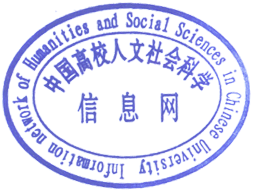墨儒两家之 “孝”、“三年之丧”与“爱”的区别与争论
作者:郭齐勇
关 键 词 :中国传统文化 墨儒两家 孝 三年之丧 爱学科分类:
摘要/Abstract
先秦儒墨两家同源,在诸多问题上又有着严重分歧并展开辩论。两家都肯定孝敬父母;墨家直接从“互利互惠”“回报”的向度讲“孝”,儒家则不然;“孝”在墨家是“兼爱”系统中的一环,在儒家则是“仁爱”系统中的一环。墨家批判儒家主张的厚葬久丧对社会生产与人的生活造成损害,浪费资源。儒家则从人的真情实感与人文价值出发,认为在制度上规定守丧的仪节规范,有助于人性、人情的养育与社会风气的淳化。墨家主张“爱无差等”,批判社会不公及爱的不周遍;儒家则主张“爱有差等”,意即爱人爱物总是要从身边做起,推而广之。仁爱是普遍的,仁爱的实
Although Pre-Qin Confucians and Mohists can be traced back to the same source, they had great divergences on many issues and started debate on them. Both schools had regarded showing piety to parents as positive. While Mohists proceeded piety from the perspective of “mutual benefit” and “reward”, Confucians did not. “Filial piety” according to Mohists is a link in the system of “concurrent love”, whereas according to Confucians it is a connection in the system of “benevolence”. Mohists criticized Confucians for their practice of luxurious burial and long period of mourning, which they thought had caused great harm to social production and people’s life and had wasted social resources. Starting from the perspective of a person’s true sentiment and humane value, Confucians thought that the institutional practice of abiding by the mourning ritual was conducive to cultivating human nature, human sentiment and fostering good social mood. Mohists maintained that “there is no differentiation of love” and they lashed at social injustice and the limited scope of love. Confucians maintained that “love with differentiation” means that loving people and loving things must be personal, that is, from an individual to the masses. Al though the concept of benevolence is universal, however, the practice and spread of benevolence is the embodiment of universality. ““love with differentiation” is a virtue and wisdom that go through practice. The shortcomings of Confucianism which the Mohists have pointed out are necessary complements for optimizing Confucian theory.

